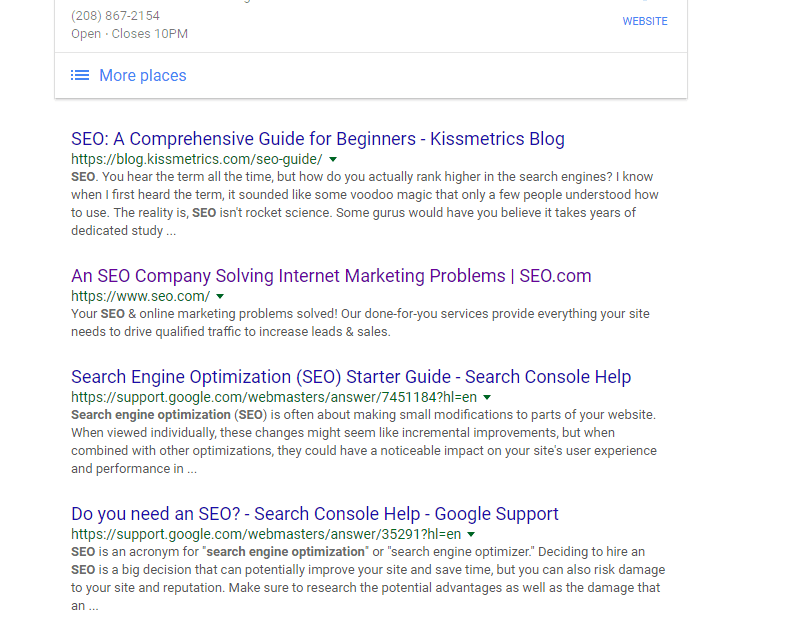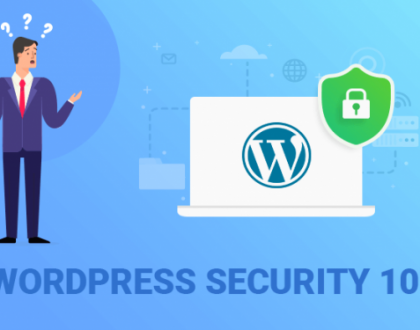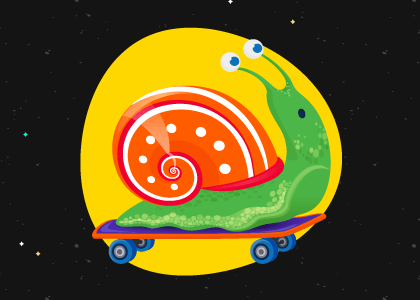Why Isn’t My Website Ranking?

by One4All
Reaching the top spots of the search engine results pages can improve your company’s exposure, establish you as an industry authority, and deliver the kind of ROI you want to see.
So why isn’t your website ranking at the top yet?
That’s the million-dollar question that every company has asked itself at one point or another. Unfortunately, there isn’t a million-dollar answer.
Or, at least, there isn’t one single million-dollar answer.
Your website might be struggling to reach the top for any number of reasons. So, if it feels like you’ve been at it for a long time without getting the best results, consider these possibilities:
You Haven’t Given It Enough Time
According to this Google Webmaster video, you need to be patient when it comes to SEO.
There’s no way around it.
Things need to be done, and they need to be done in order. (It will do you no good to build a bazillion links if they all go to a website that isn’t able to convert the traffic.)
It takes time to research, create, and implement a strategy and begin producing content.
Then it takes more time for Google to realize changes have been made, and then you have to wait for the search engine to determine if you are really providing new value.
We’ve linked the above video before, but we like to back up our claims like this whenever possible.
In it, she states that, in general, it takes four months to a year to first implement improvements and then for you to start seeing results.
In other words, time is something that you can’t avoid. It’s hard, but SEO requires patience.
Your Keyword May Not Mean What You Think It Should
This is our experience with the term “SEO.”
That keyword is obviously important for us. At one point, though, our homepage couldn’t be found for that term at all. We didn’t do anything to the page to make it drop out of the rankings, it was just gone one day.
So, we really started looking at the environment of search results page for that word.
We had been ranking on the second page for a long time, only ever able to crack #10 on occasion. And then it disappeared.
Our blog page, however, didn’t.
Turns out, when you really look at that first page, it’s easy to see that Google does not believe people searching for the term “SEO” are looking for a company to do the SEO for them.
Instead, they’re trying to provide as much information about what SEO is or how it is done.
That’s why (not including paid results) nearly every result on the first page is a guide to SEO, a discourse on what SEO is, and whether you need it.
Google itself is currently hogging at least 2 spots on the front page.
So, for a while, we were of the opinion that we simply couldn’t rank our homepage on the first page anymore. It’s simply not what Google considers an appropriate answer to the query of “SEO”.
(Of course, just to prove us wrong, Google began ranking our homepage again. We’re currently the only agency site that ranks on the first page.)
ranking our homepage again. We’re currently the only agency site that ranks on the first page.)
The point of all this is that you may want to rank a certain page for a certain keyword, and despite all the good SEO you do, it never quite seems to break for you because the word means something different to you than it does to Google.
Take a closer look at the first page and see if maybe the types of results Google wants to show are different from the kind you want to provide.
Your Website May Look Great, but It’s Beauty is Only Skin Deep
You’ve paid a lot for a well-designed and very modern website. Everything about it looks great. You check it out on a daily basis just to appreciate the design a little more.
Why doesn’t Google appreciate it the way you do?
It’s possible that your design may look great but hasn’t accounted for every SEO angle.
There could be any number of things holding you back, including:
- Duplicate content
- Insufficient content
- Old, untouched, stale content
- Confusing navigation
- Split keyword focus, so there are multiple pages that could rank for a given word
- Incomplete basics, such as metas, alt tags, and schema markup
- No blog or other way to continually refresh your content
You Have Gone Unnoticed by the Web at Large
Links are still a thing, and probably always will be. And while there’s a bajillion ways to get them, not all of them are worth having, and some could be detrimental.
You need a good portfolio of links from various sources. Some should be no-follow, some should be from really good sites, some should be just normal sites.
Buying links is out of the question. Link schemes, also bad. It’s important to find natural ways to increase the good links and avoid the ones that may raise flags for Google.
Of course, links could be a problem in another way, too.
For example:
You’ve Been Noticed by the Wrong Part of the Web
Some people may start using some unethical tactics on your website.
They don’t actually need a reason to do this. They may simply choose your website as a target to inject malicious code. Or they may start scraping your blog and republishing all your content. Or they could start building countless links to your site from questionable websites.
Google is pretty good at spotting a negative SEO attack, but you don’t want to risk the kind of penalty that could result from it, so stay on guard.
And this brings us to our next entry:
Google May Have Put You in the Penalty Box
A Manual Action penalty can completely remove your website from Google’s search results.
If you’ve previously ranked really well and then dropped significantly (if not completely out of the rankings), you may be on the wrong side of a penalty.
The only thing you can do is check the Google Manual Actions report and start correcting the issues.
If you have received one of these reports, it means a human reviewer has determined that your website is no longer compliant with Goggle’s guidelines.
What could cause a Manual Action? According to Google, you could be penalized if the reviewer determines that you have:
- A hacked site – Someone has uploaded and hidden malicious content on your site.
- User-generated spam – Spam comments on forums or blogs.
- Spammy freehosts – A significant portion of the pages hosted on a service are spammy.
- Spammy structured markup – Markup on the page is outside the guidelines, like making some content invisible to users.
- Unnatural links to your site – If you have a lot of links deemed artificial, deceptive, or manipulative (including buying links or participating in link schemes), you may be penalized.
- Unnatural links from the site – Same as above, but now they’re coming from your site.
- Thin content with little or no added value – Your pages need to offer some real value to users.
- Cloaking or sneaky redirects – I.e., showing different pages to users and to Google.
- Pure Spam – This includes most of the stuff already mentioned, just more aggressive and overt.
- Cloaked images – Manipulative use of images in order to get more clicks.
- Hidden text and keyword stuffing – These are oldies but goodies, and apparently it’s still enough of a problem for Google to list it here.
You’re Treating Your Website Like It Exists in a Vacuum
SEO does not exist in a vacuum. It lives right here with its neighbors: online marketing, social media, PPC, and many other online endeavors.
|Get your social media checklist and discover new social opportunities.|
We’re not just trying to sell you on our other services, here. Online marketing is simply a far more holistic strategy than it once was.
Elements like time on site, number of clickthroughs, number of mentions around the internet, and engagement on social media all figure into your rankings.
Granted, some of them affect your rankings more indirectly than others, but they all play an important role.
Google is looking at more signals than just those you’re putting out on your website.
We’re not saying that posting regularly on Facebook is directly connected with better rankings. We’re saying that building a community on social media will lead to more people visiting your site, clicking your links, and reading your content.
And all of those things can lead to more than just better rankings.
These days, though, the most common reason your website isn’t ranking is probably:
Your Competition Is Doing More Than You
You’re not doing SEO in a vacuum.
Search engine optimization is no longer a secret technique that your competition has never heard of. It’s an integral part of modern marketing, and for every link you’re not building and every blog you’re not publishing, your competition is.
So, if you start to think you don’t need it, or if you start to think you’ve done enough, then there is someone working really hard to show you how it really should be done.
If you’ve been dipping your toes into SEO, you may start to see a little movement up the rankings. However, the simple fact is that those who wade out into the deeper end of SEO are going to see more results than you.
Remember, when you start doing SEO, it isn’t you against Google. It’s you against all your regular competition. And you’re all aiming to set up shop in a very limited space.
Even Small Changes Can Make a Difference
You may be thinking that there is a lot to do to start climbing to the top of the search engine rankings.
And you’d be right.
However, that’s just more of a reason to get started now. You can begin by making some small and simple changes to your website, even before you start thinking about whether you should hire an agency or go in-house for your SEO.
If you’re not ranking yet, you may just need to give it a little more time.
Or…
You may need to dive into a serious overhaul of your website.
Either way, examine your current situation, start small, and begin making the changes you can.
You may be surprised how much they help.
Recent Posts

Ultimate WordPress Security Guide
April 30, 2021

Make WordPress 10x Faster With W3 Total Cache And CloudFlare
February 17, 2021

YouTube’s pushback on kids’ privacy criticized by consumer groups
December 13, 2019

